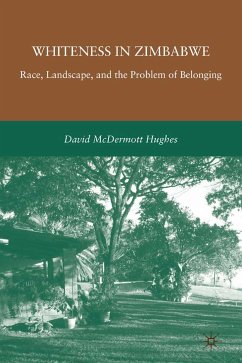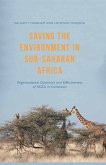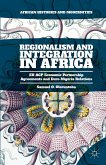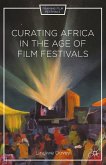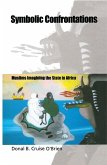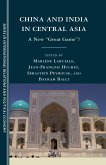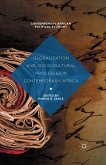Dieser Download kann aus rechtlichen Gründen nur mit Rechnungsadresse in A, B, BG, CY, CZ, D, DK, EW, E, FIN, F, GR, HR, H, IRL, I, LT, L, LR, M, NL, PL, P, R, S, SLO, SK ausgeliefert werden.
"It took a book this engaging to show us how linked the categories of race and space are. The entitlements and embodiments of white settlement shaped the history and hydrology of agriculture and development in Zimbabwe. In the end, Hughes tells us, the farms and fictions hewn from an imaginary wilderness were no more natural than the politics of exclusion that dominated twentieth and now twenty-first century Zimbabwe." - Luise White, Professor of History, University of Floridaand author of The Assassination of Herbert Chitepo: Texts and Politics in Zimbabwe
"Whiteness in Zimbabwe is a powerful analysis of how, as the author puts it, 'environmental conservation and white identity have produced and shaped each other.' Through a careful and convincing analysis of both agricultural practices and forms of representation such as literature and photography, it lays bare the way that white settlers' romance with nature and landscape has been both a way of claiming mastery and belonging in an alien land, and a way of avoiding meaningful engagement with the majority black population. With implications that go far beyond Africa (not least, to the 'neo-Europes' of North America and Australia), this book is a major intervention into the vigorous current global debates on the politics of conservation." - James Ferguson, Professor of Anthropology, Stanford University and author of Global Shadows: Africa in the Neoliberal World Order

